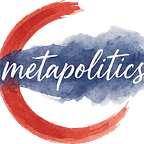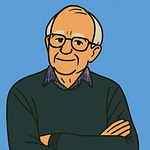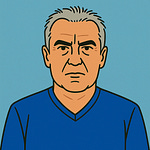In this episode of Metapolitics, hosts Barry Richards and Mustafa Selek welcome Professor Gary Chartier, Distinguished Professor of Law and Business Ethics at La Sierra University, to discuss his provocative book "Christianity and the Nation-State." Chartier presents a radical liberal argument that challenges fundamental assumptions about political authority, state legitimacy, and social organization.
The conversation begins with Chartier explaining his preference for the term "liberalism" over "libertarianism" or "anarchism," emphasizing his commitment to human variety and diversity within a broad liberal tradition rooted in Aristotelian concepts of human flourishing. He argues that states are inherently illegitimate due to their lack of consensual foundations and the inevitable corruption that comes with concentrated monopolistic power—a corruption that affects not just bad actors but well-intentioned people who may cause harm through ignorance or misguided benevolence.
Chartier introduces his alternative vision: a "consociational" model of fluid, network-based associations that transcend territorial boundaries. Drawing on the work of reformed political theorist Johannes Althusius, he envisions overlapping voluntary networks where people can affiliate based on shared values—whether religious communities following Catholic canon law, Jewish law, or Sharia, or more secular associations—while maintaining the crucial ability to exit without geographic dislocation.
The hosts probe the practical implications of this model, particularly around economic issues like taxation and the provision of public goods. Barry questions whether Chartier's critique of human nature that condemns state power wouldn't equally apply to network-based governance, while Mustafa raises concerns about power imbalances between comprehensive ideological groups and more limited associations like hobby clubs.
Chartier acknowledges that his model won't eliminate human nature's capacity for mischief but argues it would distribute power more effectively and reduce opportunities for abuse through voluntary association and ease of exit. He draws parallels to the just war tradition, suggesting his Christian anarchist approach could appeal beyond theological circles while remaining grounded in natural law thinking about peaceful voluntary cooperation.
This episode offers listeners a unique perspective on political theory that challenges conventional thinking about state authority and presents an alternative vision for social organization based on voluntary association, human flourishing, and the practical limitations of concentrated power.










